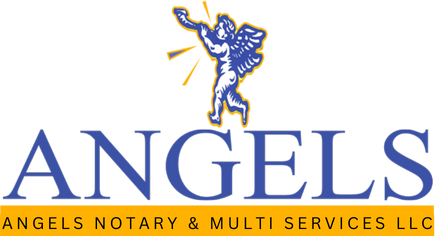When dealing with various legal documents, you may have come across terms like “certified” and “notarized.” While they may seem similar, they are distinctly different processes that are essential in different contexts. Understanding the difference between certified and notarized documents is crucial for ensuring that your paperwork is valid and legally binding.
What Is a Certified Document?
A certified document is a copy of an original document that has been verified as an accurate and true reproduction by a qualified professional or authority. This is typically done by a professional who has the authority to verify and attest to the document’s authenticity, such as a lawyer, notary public, or another qualified official. The professional will carefully review the copy against the original document and will then add a statement or seal to the copy, confirming its authenticity.
Certified documents are commonly required when submitting copies of essential records, such as birth certificates, diplomas, or transcripts, to government agencies or educational institutions.
What Is a Notarized Document?
A notarized document is a document that has been signed by the parties involved in front of a notary public, who then adds their signature and notary seal to confirm that the signatures are genuine. The primary function of a notary public is to act as an impartial witness, ensuring that the parties signing the document are who they say they are and that they have signed the document willingly and without coercion.
Notarized documents are often required in various legal transactions, such as signing a mortgage, drafting a will, or transferring property ownership, to add an additional layer of security and validity to the document.
The Difference Between Certified and Notarized Documents
While both certified and notarized documents involve a third party verifying the document’s authenticity, the primary difference between the two lies in the focus of the verification process.
Certified documents focus on confirming that a copy of a document is an accurate and true reproduction of the original. In contrast, notarized documents focus on validating the identity of the parties signing the document and ensuring they have done so willingly.
FAQs About Certified and Notarized Documents
Many questions float around certified and notarized documents, and here are some of the most common ones answered:
1. Can a Certified Document Also Be Notarized?
Yes, a document can be both certified and notarized. In some cases, a certified copy of a document may need to be notarized to verify the identity of the person presenting the certified copy, ensuring that the certified document is being used for the intended purpose.
2. Can Anyone Certify a Document?
No, only authorized individuals or professionals can certify a document. These professionals may include notary publics, lawyers, or government officials, depending on the specific document and the jurisdiction.
3. How Long Is a Certified or Notarized Document Valid?
The validity of a certified or notarized document depends on the specific document and the requirements of the agency or organization requesting it. Some institutions may require a certified or notarized document to be issued within a certain time frame, such as within the past six months. It is essential to check the specific requirements for the document in question.
4. How Much Does It Cost to Get a Document Certified or Notarized?
The cost of getting a document certified or notarized can vary depending on the professional providing the service and the location. Notary public fees are often regulated by the state or jurisdiction, while fees for certifying documents by other professionals, such as lawyers, may vary. It is essential to confirm the costs with the professional providing the service before proceeding.
Conclusion
Overall, it is crucial to comprehend the distinctions between certified and notarized documents to guarantee your documents fulfill the required legal standards. Both methods involve confirming a document’s genuineness; however, certified documents primarily deal with verifying the correctness of a copy, while notarized documents deal with authenticating the signatories’ identities. By being aware of when and how to acquire certified or notarized documents, you can confidently tackle different legal procedures and ensure you get exactly what you need.
Angels Notary & Public Tag is your one-stop shop to get your papers quickly notarized and meet many other needs, such as DMV service, fingerprints, and the like. If you are looking for notary services in Morgan City, reach out to us today.

